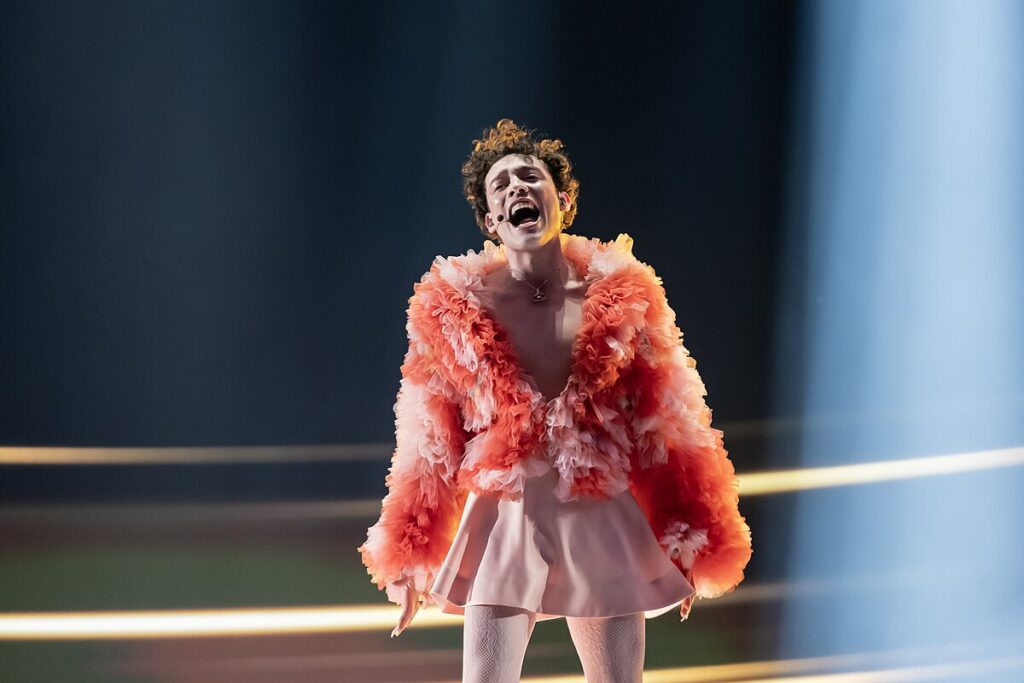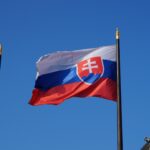Culture
Gender-confused performers use Eurovision contest as a platform to mainstream the LGBT culture
Eurovision is finally over, and the song contest that has become one of Europe’s biggest cultural events has attracted far more attention than usual this year. There was the uproar over Israel’s participation; the fining of the Ukrainian delegation over their “Free Azovstal Defenders” t-shirts; and, of course, the non-binary witch who represented Ireland. As Michael Haynes previously reported, the 31-year-old Bambie Ray Robinson openly declared that she was seeking to use music to get people involved in witchcraft.
As one of my Irish friends noted, the weird, diabolical figure is a good microcosm for Ireland’s ongoing moral collapse. It reminded me of a deeply disturbing ad put out by abortion supporters demanding that the 8th Amendment protecting preborn children be removed from Ireland’s constitution in which women dressed in black chanted together: “We are the granddaughters of the witches you couldn’t burn.” Our post-Christian culture has become anti-Christian, and witches have been transformed into daring dissidents resisting moral tyranny. During her Eurovision performance, Robinson summoned a demon onstage. Satanic imagery has become a popular theme in popular music over the past few years.
Less discussed is the fact that the final winner of the Eurovision contest, a Swiss singer who goes by Nemo, also identifies as “non-binary” and won for an anthem on his “journey toward embracing a nongender identity,” whatever that means. The song is called “The Code,” and calls for the breaking down of biological boundaries. “I’m done playin’ the game, I’ll break out of the chains,” Nemo sang. “The chains,” in this context, refers to the male-female sex binary. The wildly popular song advocates for smashing social boundaries and refers to the “non-binary” identity as “breaking the code”:
I, I went to hell and back
To find myself on track
I broke the code, woah-oh-oh
Like ammonites
I just gave it some time
Now I found paradise …
Let me tell you a tale about life
‘Bout the good and the bad, better hold on tight
Who dеcides what’s wrong, what’s right?
Everything is balance, еverything’s light
I got so much on my mind
And I been awake all night
Nemo goes on to say that “this story is my truth” and that “somewhere between the O’s and ones, That’s where I found my kingdom come.” The song is intended to be an LGBT anthem, with Nemo noting in his victory speech: “I hope this contest can live up to its promise and continue to stand for peace and dignity for every person.” Previously, Nemo had noted that his winning song is “about the journey of finding my true self.”
In addition to Nemo and the Irish witch, another singer also identified as “non-binary” and eight of the performers identified as somewhere on the ever-expanding LGBT spectrum. It’s no wonder that Eurovision is often referred to as “Queer Christmas”; because the contest has, in recent years, become an opportunity not only for the LGBT movement to broadcast their worldview but also, as in the case of Nemo and Bambi, to push social boundaries further; to move the Overton Window further; to mainstream new ideologies such as “gender fluidity” further.
I don’t watch Eurovision (or any other music contest or awards ceremony, for that matter). But the reality is that these events do act as accelerants for the cultural changes we are seeing. “Let me make the songs of a nation, and I care not who makes its laws,” Andrew Fletcher once noted. That is because he knew what the LGBT movement has long understood: that if you take the culture, you will inevitably take the power.








